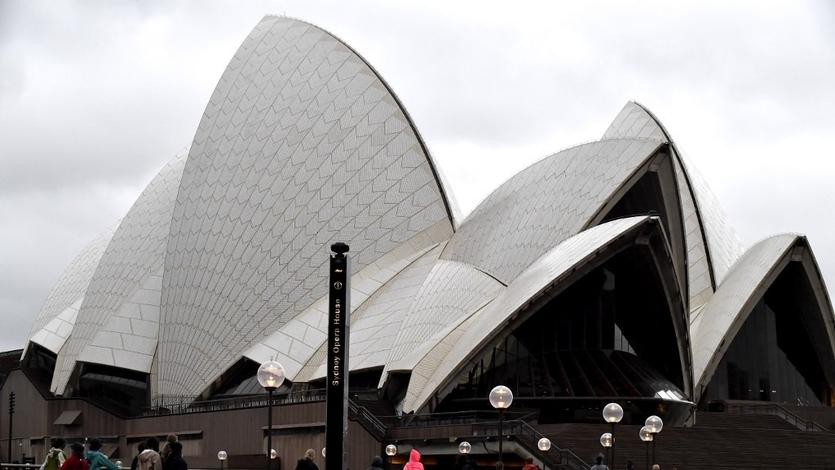 People visit Opera House in Sydney on March 8, 2022. (MUHAMMDAD FAROOQ / AFP)
People visit Opera House in Sydney on March 8, 2022. (MUHAMMDAD FAROOQ / AFP)
SYDNEY - Australia's central bank is nearer to raising interest rates for the first time in more than a decade as inflation accelerates and a tightening labor market nudges wage growth higher, minutes of its April policy meeting showed on Tuesday.
The Reserve Bank of Australia's Board saw core inflation lifting above the bank's 2-3 percent target range in the March quarter and more firms were expecting to pass on price rises to consumers. Wage growth was still lagging but likely to pick up as the unemployment rate fell to 4 percent and below.
ALSO READ: Election battle in Australia becomes ugly
"These developments have brought forward the likely timing of the first increase in interest rates," the minutes showed. "Over coming months, important additional evidence will be available on both inflation and the evolution of labor costs."
Data for consumer prices are due on April 26 and analysts suspect it will show core inflation jumped by 1.0 percent or more in the first quarter to lift the annual pace to at least 3.2 percent
Data for consumer prices are due on April 26 and analysts suspect it will show core inflation jumped by 1.0 percent or more in the first quarter to lift the annual pace to at least 3.2 percent.
That would be the first time core inflation topped the RBA's 2-3 percent target band since early 2010, making it harder to justify retaining rates at emergency lows of 0.1 percent.
Key figures on wages for the March quarter are out on May 18, while data on gross domestic product on June 1 would provide broader evidence on labor costs.
ALSO READ: Australia's Victoria to spread 2026 Commonwealth Games
"While the Q1 wage index will still show subdued wage growth, we think that will be trumped by rapidly rising inflation and we're sticking to our long-held forecast that the Bank will start its tightening cycle in June," said Marcel Thieliant, a senior economist at Capital Economics.
Markets, too, are wagering heavily on a rate rise to 0.25 percent at the RBA's June 7 policy meeting , and have almost seven more hikes to near 2.0 percent implied by year end.
That aggressive outlook in part reflects expectations the US Federal Reserve will hike by 50 basis points in both May and June, adding to pressure for other central banks to follow.
Central banks from New Zealand and Canada both recently hiked by half a point citing the need to restrain inflation expectations.
Any RBA rate rise would be a shock for local borrowers given they have not seen an official increase since 2010 and households are sitting on record levels of mortgage debt.


